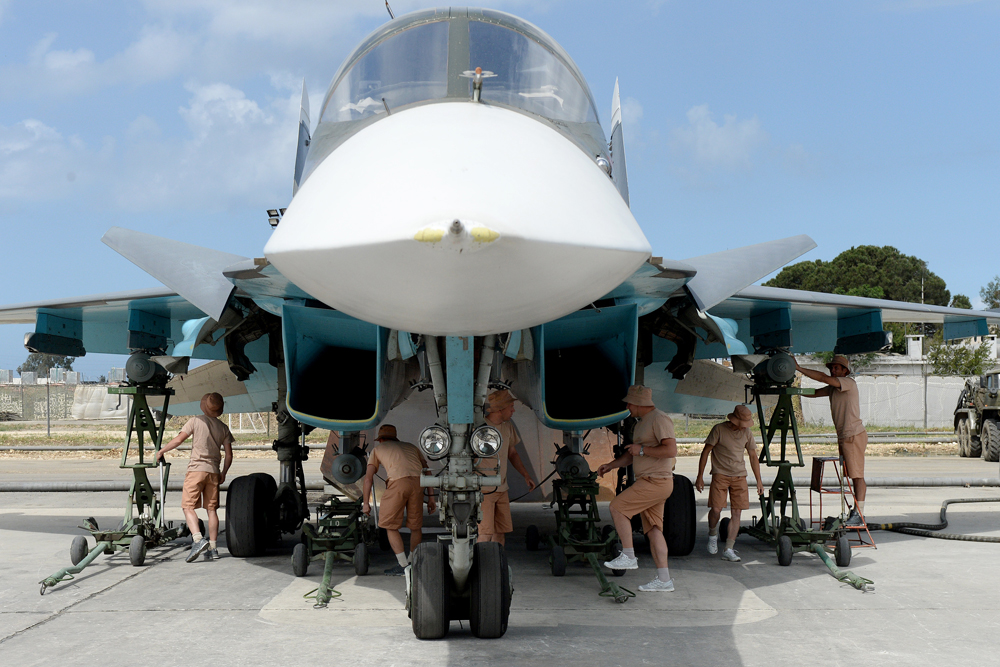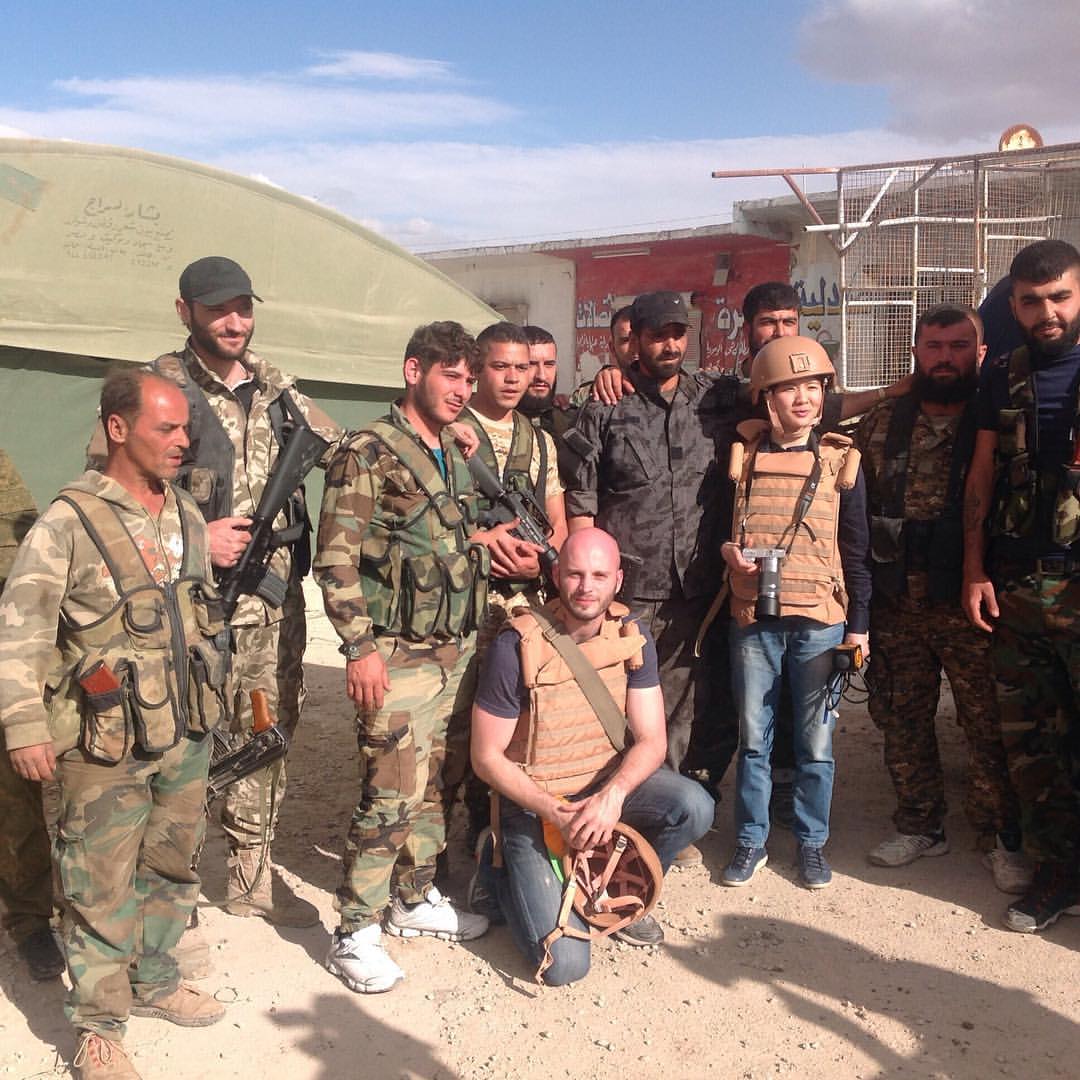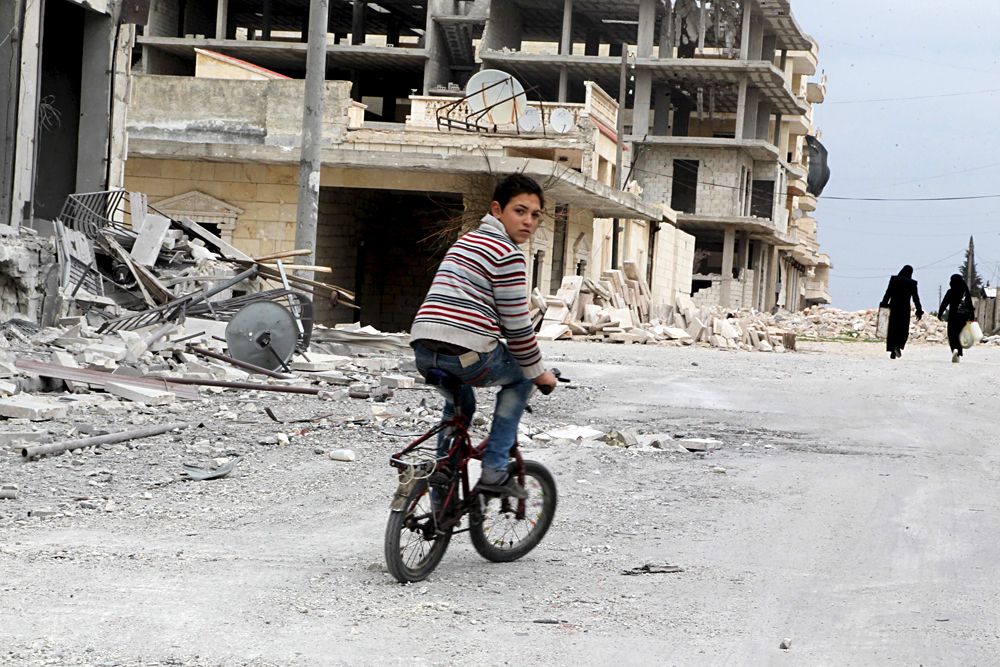What is happening in Russia’s anti-terrorist campaign in Syria?

Russian servicemen prepare an Su-34 fighter jet for a mission from the Russian Hmeimim military base in Latakia province, in the northwest of Syria on May 4, 2016.
AFP/East NewsRussia's Khmeimim military base in Syria pulses with activity day and night. Despite the truce announced on Feb. 27, the war against Islamic State (ISIS) and Jabhat al-Nusra is continuing.
Our plane arrived at the military base at 8 o’clock in the morning. At this time, the unit's personnel were already in full kit at the parade ground to be deployed on combat duties.
Where the Russian air force is fighting today
While a briefing was held for journalists, servicemen were preparing fighters and bombers for take-off: they were loading two 500-kilogram high-explosive bombs into a Su-34S fighter-bomber.
As Maj. Gen. Igor Konashenkov, a spokesman for the Russian Defense Ministry, told RBTH, several Russian aviation units were being sent to an ISIS-held regionin north central Syria that includes the cities of Raqqa and Arak, as well as to the city of Deirez-Zor, which is besieged by terrorists.
"Heavy fighting is underway on the outskirts of the latter, and residents of the city have been completely cut off from the rest of the world," he said. "Every 10 days, military transport planes drop humanitarian aid for the population in Deirez-Zor. The situation in the city is serious."
Russian and Syrian troops also deliver humanitarian aid to the residents of besieged Aleppo. Government forces have been able to free one of the land routes from the militants and it is now being used to deliver essentials to the residents.
"Last week, the terrorists tried to disrupt our supplies and attacked the convoy, but we were able to repel the attack and keep the route under the control," said Konashenkov, adding that Russian aircraft are not carrying out airstrikes in the area around Aleppo.
Life on the front line
From the Khmeimim airbase, we traveled together with the Russian military and units of Syria's armed forcesto the village of Kawkabnear the city of Hama, around six miles from the front line.
 Source: Personal archive
Source: Personal archive
The bulk of Jabhat al-Nusra's militants had been dislodged from the settlement the previous day. The remaining small groups decided to surrender and swear allegiance to the current Syrian government.
Houses and walls were peppered with assault-rifle and machine-gun rounds, and some walls had gaping holes caused by 122-mm guns. Despite all the horrors of war, the lack of water and electricity, joy reigned in the village – residents were returning home after the liberation of the village from the terrorists.
Before our eyes, the village elders signed a loyalty pledge to the legitimate government, while the militants from Jabhat al-Nusra's branches guarded by Syrian soldiers laid down their arms.
As one of the Syrian officers told RBTH, those militants who have not committed serious crimes will be able to get back to normal life – to begin to cultivate land, rebuild their homes and be reunited with their families.
According to him, when Jabhat al-Nusra's militants came to the village, the majority of the inhabitants had no choice but to either lose their lives or to join the ranks of the militants. Since this situation is widespread in the war-torn country, the government has decided to give some former militants an amnesty.
RBTH thanks the press service of the Defense Ministry of Russia for its help in organizing this trip.
Read more: Mariinsky Theater Orchestra performs in Syria's Palmyra>>>
All rights reserved by Rossiyskaya Gazeta.
Subscribe
to our newsletter!
Get the week's best stories straight to your inbox
